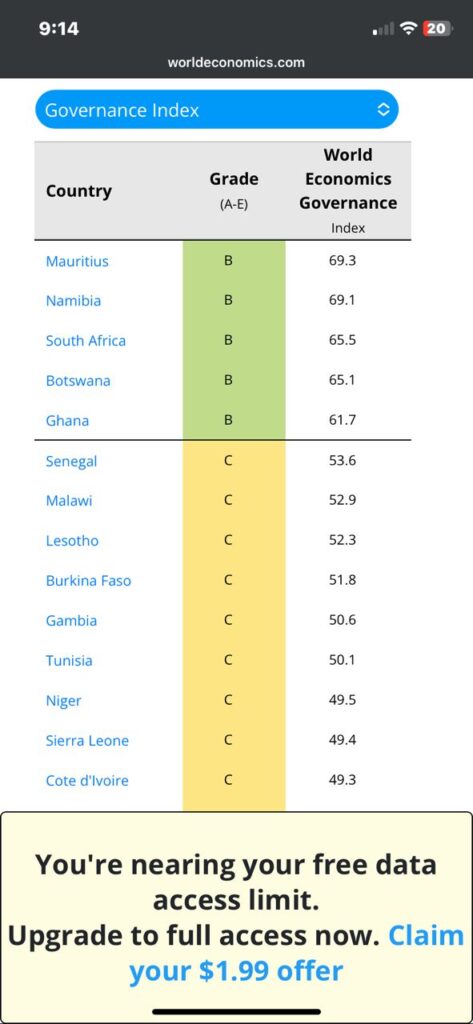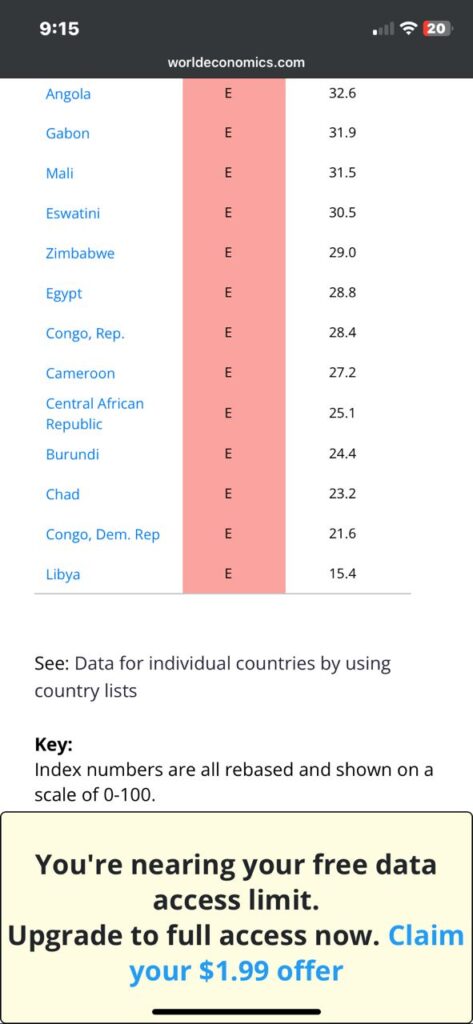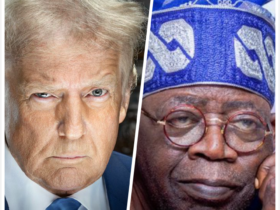Despite Nigeria’s status as the “giant of Africa,” it finds itself among the poorly governed nations on the continent, according to a report by World Economics, a research organization based in the United Kingdom.
The assessment of good governance, compiled by TRIBUNE ONLINE, revolves around four key indices: corruption perception, rule of law, press freedom, and political rights, of which Bola Ahmed Tinubu has failed woefully.
World Economics’ governance index assigns equal importance to each criterion, with scores ranging from 0 to 100, indicating the extent of governance quality.
For instance, a score of 0 signifies poor governance, while 100 represents exemplary governance.

Similarly, corruption perception, rule of law, press freedom, and political rights are rated on scale of 0 to 100, with higher scores indicating better performance.

The corresponding grade definitions range from A (very good) to E (very poor).
Nigeria received a grade of D, indicating poor governance, with an index score of 37.0.
At the bottom of the rankings, Libya received the lowest grade of E, scoring 15.4 on the index. Following Libya, the Democratic Republic of Congo (DRC) and Chad received grades of E, with index scores of 21.6 and 23.2, respectively.
READ ALSO: Don’t Condemn, Curse Nigeria; Wait Until 2027 to Remove Bad Leaders — Tinubu Warns Religious Leaders

In contrast, Ghana emerged as the fifth-best-governed nation in Africa and the top performer in West Africa. With a grade of B and an index score of 61.7, Ghana outperformed Senegal, its closest West African counterpart, which ranked sixth with a grade of C and an index score of 53.6.

Namibia secured the second position with a grade of B and an index score of 69.1, while South Africa and Botswana ranked third and fourth, respectively, both receiving a grade of B with index scores of 65.5 and 65.1.








Leave a Reply